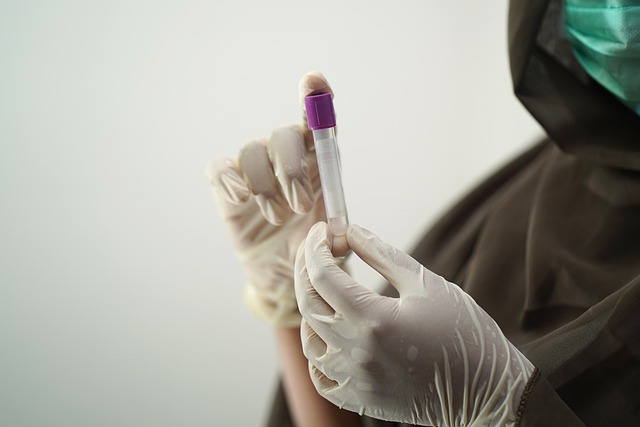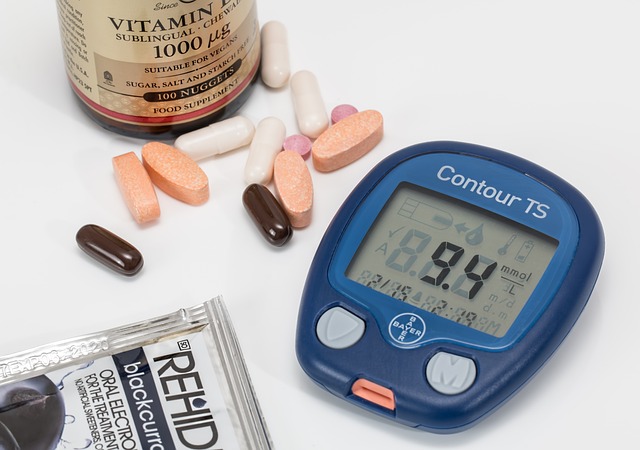The UK's approach to men's health prioritizes understanding the role of testosterone in maintaining physical and mental well-being. This crucial hormone influences muscle mass, bone density, libido, sperm production, mood, cognitive function, and overall vitality. A decline in testosterone may lead to hypogonadism, characterized by symptoms like fatigue, low libido, and weak muscles. The UK Kidney Blood Test, a service available through the NHS, is key in monitoring kidney health and indirectly assessing testosterone levels, which helps in early detection of hormonal imbalances. This allows healthcare providers to develop personalized treatment plans, including lifestyle adjustments or hormone replacement therapy. The strategic use of this test underscores the importance of preventative care for men's health, aiming to improve quality of life and manage hormonal deficiencies effectively within the UK system. Awareness of the significance of testosterone testing is growing, making it an essential aspect of addressing men's health issues by enabling early intervention and treatment. Regular monitoring through the UK Kidney Blood Test is vital for the timely diagnosis and management of conditions like hypogonadism, facilitating better health outcomes for men in the UK.
navigating the complexities of male health is pivotal, particularly with the role testosterone plays. This article sheds light on the significance of testosterone level testing within the UK’s healthcare framework, offering insights into its critical function in early diagnosis and management of male health issues. We will explore how understanding testosterone’s influence, the importance of timely testing, and the practicalities of arranging a testosterone level blood test—akin to a UK kidney blood test—can contribute to maintaining optimum health. This guide aims to empower men with the knowledge to take charge of their well-being.
- Understanding Testosterone and Its Role in Men's Health: A UK Perspective
- The Importance of Testosterone Level Testing in Early Male Health Issue Detection
- Navigating the Process: How to Arrange a Testosterone Level Blood Test in the UK
Understanding Testosterone and Its Role in Men's Health: A UK Perspective

In the United Kingdom, maintaining optimal health is a priority for many men, and understanding the role of testosterone is pivotal in this endeavour. Testosterone, often referred to as the primary male hormone, plays a critical part in various physiological processes including muscle mass maintenance, bone density preservation, and the regulation of libido and sperm production. Its influence extends beyond these functions; it also impacts mood, cognitive function, and overall well-being. A decline in testosterone levels can lead to a condition known as hypogonadism, which is characterised by symptoms such as fatigue, decreased libido, and a reduction in muscle mass and strength. In the UK context, healthcare professionals often employ blood tests, including the UK Kidney Blood Test, to measure testosterone levels accurately. This test assesses kidney function, a key organ for filtering waste and secretions that indirectly influence testosterone production. By identifying any disparities in testosterone concentration, medical practitioners can diagnose hormonal imbalances and devise appropriate treatment plans, which may range from lifestyle modifications to hormone replacement therapy. This early detection and intervention are crucial in managing health issues related to hormonal deficiencies and ensuring men across the UK maintain their quality of life. With a growing awareness of men’s health and the importance of preventative medicine, the role of testosterone testing has become increasingly significant within the UK’s healthcare landscape.
The Importance of Testosterone Level Testing in Early Male Health Issue Detection

Regular testosterone level testing is a critical component in the early detection and management of male health issues, particularly those related to hormonal imbalances or conditions such as hypogonadism. In the UK, initiatives like the NHS-provided UK Kidney Blood Test serve as a valuable tool for assessing overall health, including testosterone levels. This comprehensive analysis not only aids in the diagnosis of testosterone deficiency but also acts as a gateway to early intervention for associated conditions, which can be beneficial in preventing long-term complications.
Early detection through consistent testosterone monitoring allows for timely treatment and management, which can significantly improve male health outcomes. For instance, addressing low testosterone levels promptly can lead to better quality of life, increased energy levels, improved mood, and enhanced sexual function. Moreover, early identification of these issues can prevent the progression into more severe conditions, thereby reducing the risk of developing secondary complications such as metabolic syndrome or cardiovascular diseases. The UK Kidney Blood Test provides a non-invasive method for healthcare providers to obtain a comprehensive picture of a man’s health status, making it an indispensable diagnostic tool in the realm of preventative medicine and men’s health care.
Navigating the Process: How to Arrange a Testosterone Level Blood Test in the UK

Understanding the importance of maintaining optimal testosterone levels is key to male health, as this hormone plays a pivotal role in various bodily functions. If concerns about hormonal imbalance arise, arranging a testosterone level blood test is a critical diagnostic step. In the UK, this process is streamlined for patient convenience through both NHS and private healthcare services. To initiate the process, one must first consult with a general practitioner (GP) or a specialist endocrinologist to obtain a referral. This consultation serves as an opportunity to discuss symptoms and potential testosterone deficiency, which can be indicative of various health issues such as hypogonadism or other hormonal disorders.
Once referred, the GP or specialist will instruct on how to proceed with the UK kidney blood test specifically designed to measure testosterone levels accurately. This test is particularly important because the kidneys play a significant role in its excretion. The GP may suggest visiting a National Health Service (NHS) clinic or designate a private medical facility for the blood collection. The latter option often provides quicker access and results, catering to individuals who prefer a more expedited process. After the test, the sample is sent to an accredited laboratory where it is analysed. Patients are advised to communicate with their healthcare provider to discuss the results and any necessary follow-up actions or treatment plans. This comprehensive approach ensures that individuals in the UK can effectively monitor their testosterone levels, which is a vital aspect of maintaining overall male health.
In conclusion, testosterone level testing plays a pivotal role in the early diagnosis and management of male health issues within the UK. Understanding the significance of testosterone in men’s overall well-being is crucial for timely intervention and effective treatment. The process of arranging a testosterone blood test, which falls under the umbrella of UK kidney blood tests, has been streamlined to ensure accessibility and accuracy. Men experiencing symptoms suggestive of hormonal imbalances are encouraged to consult healthcare professionals who can guide them through the necessary steps for testing. By embracing this approach, the UK healthcare system can enhance the quality of life for countless individuals and contribute to a more nuanced understanding of male health.
